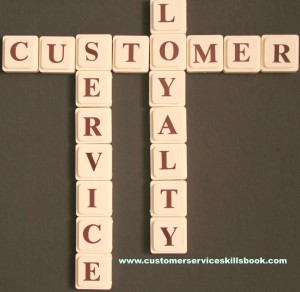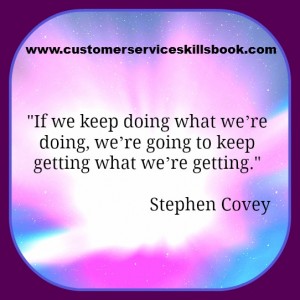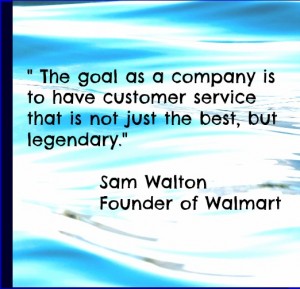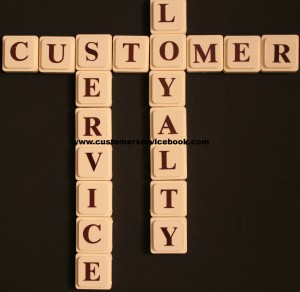The Impact of Customer Expectations
on Customer Service
Customers come to you and your organization expecting that certain things will occur in regard to the products and services they desire. If you and other customer service representatives or employees fail to deliver them, your customers can easily desert to a brick and mortar or online competitor.
If you pay attention to your customers and strive for excellent customer service, you increase the chance that customer and brand loyalty will more likely result.
Typical customer expectations include one or more of the following things when they patronize an organization:
Expectations Related to People
- Friendly, knowledgeable service providers.
- Respect (to be treated like they are intelligent).
- Empathy (to have feelings and emotions be recognized).
- Courtesy (to be recognized as “the customer” and as someone who is important to you and your organization).
- Equity (not to feel that one individual or group gets preferential benefits or treatment over another).
Expectations Related to Products and Services
- Ease of accessibility.
- Availability of products and services (no lengthy delays).
- Reasonable and competitive pricing.
- Products and services that adequately address needs.
- Quality (appropriate value for money and time invested).
- Ease of use.
- Safety (warranty available and product free of defects that might cause physical injury)
- State-of-the-art products and service delivery.
- Easy-to-understand instructions (and follow-up assistance availability).
- Ease of return or exchange (flexible policies that provide alternatives depending on the situation).
- Appropriate and expedient problem resolution.
- Restitution for the inconvenience, damage or loss.
For proven strategies for meeting customer needs, wants and expectations and for creating a customer-centric organization, get copies of Customer Service Skills for Success, Please Every Customer: Delivering Stellar Customer Service Across Cultures and How to Be a Great Call Center Representative.
About Robert C. Lucas
Bob Lucas has been a trainer, presenter, customer service expert, and adult educator for over four decades. He has written hundreds of articles on training, writing, self-publishing, and workplace learning skills and issues. He is also an award-winning author who has written thirty-seven books on topics such as, writing, relationships, customer service, brain-based learning, and creative training strategies, interpersonal communication, diversity, and supervisory skills.
Additionally, he has contributed articles, chapters, and activities to eighteen compilation books. Bob retired from the U.S. Marine Corps in 1991 after twenty-two years of active and reserve service.
Bob Lucas B.S., M.A., M.A, CPLP is the principal in Robert W. Lucas Enterprises, Inc and an internationally-known author; learning and performance professionals. He has written and contributed to numerous books on the subject of customer service skill training.
He regularly conducts workshops on creative training, train-the-trainer, customer service, interpersonal communication, and management,
and supervisory skills.
Learn more about Bob and his organization at www.robertwlucas.com and follow his blogs at www.robertwlucas.com/wordpress,
www.customerserviceskillsbook.com, and www.thecreativetrainer.com. Like Bob at www.facebook.com/robertwlucasenterprises









